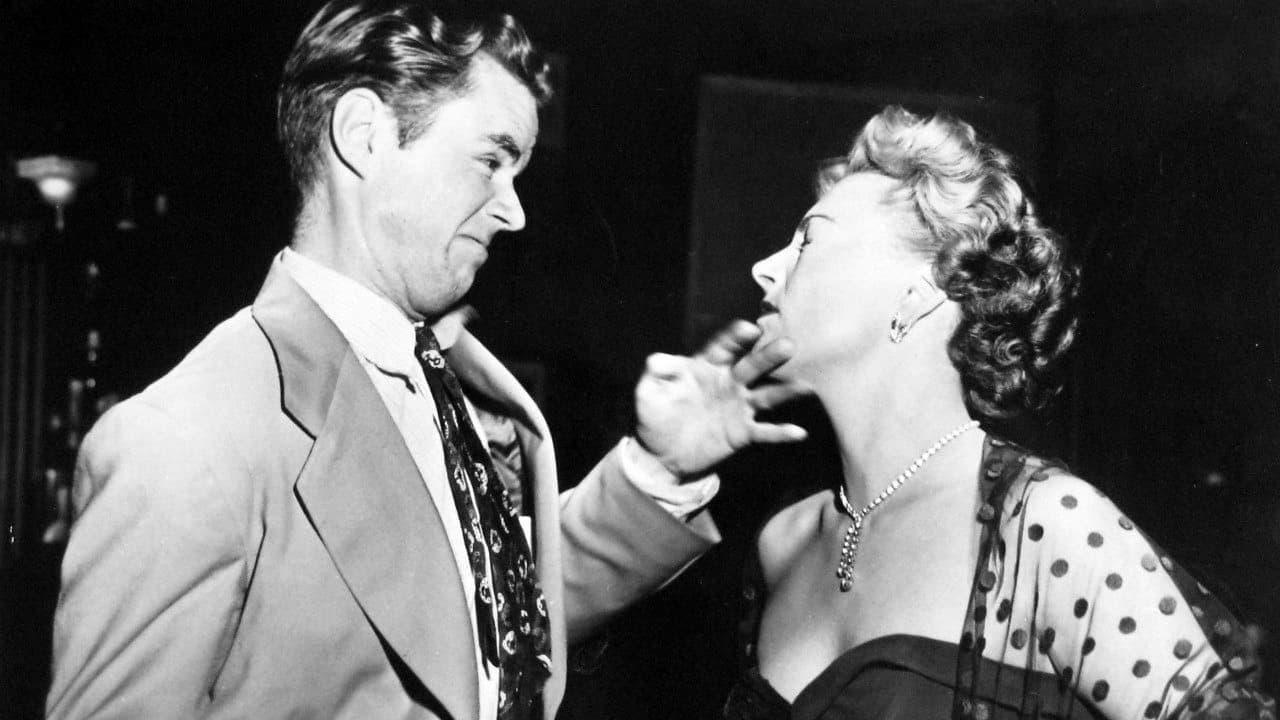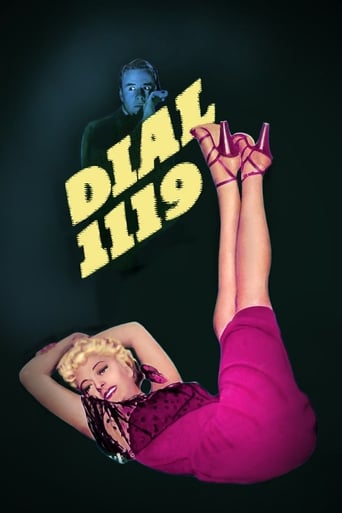

It is obvious that this is one of Dore Schary's pet projects at MGM, certainly not for the taste of Louis B. Mayer at the climax of his reign at the studio where the lion was about to roar "The End" for him. Hypocritacally patriotic Mayer disapproved of the Civil War drama "The Red Badge of Courage" and the spiritual drama "The Next Voice You Here", and it is very obvious that this one, too, made him wince. The theme is the psychological destruction that comes from war, whether involved or rejected from duty, and here, it is the later, surrounding the already demented Marshall Thompson, a young man who believes it is his duty to kill, having wanted so much to do so when World War II came up.Killing a bus driver after he is discovered to have a gun, he then takes over a local bar where a new invention called television is presenting local news as the bartender (William Conrad) grumbles about it. It is the local news that will soon be camping outside this bar when Thompson orders local police to send doctor Sam Levene there for one last confrontation in exchange for the hostages he has taken. Virginia Field is unforgettable as the aging and drunken "B" girl obviously tiring of life yet unable to escape her floozy identity. Andrea King is a young lady enticed by an older married man (Leon Ames) with a romantic trip out of town. These are the most memorable of the hostages, the others (including a newspaper man whose own paper ignores his call for help) not as fleshed out.The film makes a few important comments on both the human condition and the issue of violence in society. The most obvious issue is the importance of gun control. In only 75 minutes, the film's gritty and unapologetic violence takes several lives shockingly and seems to be written just to expose the growing violence in society rather than present a plot which is neatly wrapped up like the usual MGM fare. Field gets a great exit which ties the trashy element of the story with an ironic twist that is sure to bring delight.
... View MoreBack in 1936, Leslie Howard and Humphrey Bogart starred in a tough little film based on their play by the same name. Howard is a nice drifter who just happens to walk into a desert restaurant/filling station at the same time a wanted mobster and his henchmen arrive. And, through most of the film, these crooks terrorize the patrons and make them fear for their lives. This sort of plot has been repeated several times in the 1950s with "Suddenly", "The Desperate Hours" and this film, "Dial 1119".The major difference with "Dial 9111" and these other films is that instead of a criminal holding everyone hostage, it's an escaped mental patient--a guy who has no compunction about killing people with his stolen gun. Seeing this guy with a baby face is particularly striking. And, to make it a lot more creepy than these other films, he does so with absolutely no emotion--none! The bar is made up of a variety of patrons (some of which have interesting back stories--like the creep played by Leon Ames) as well as the amazingly blunt and rude bartender, 'Chuckles' (William Conrad).Once the guy begins shooting people in the bar, there isn't a lot the police can do--he might be insane but he's also smart and has figured all the angles--and police are afraid to do anything lest all the captives be killed. The film then, is a very tense standoff--on with brutal violence, great tension and a lot to offer with such a low-budget film. Well worth your time.
... View MoreEnjoyed this 1950 film which dealt with a mental patient who thinks he was a soldier during WW II and has a legal license to kill any one he decides to kill. This crazy person is played by Marshall Thompson, (Gunther Wyckoff) who is riding in a bus and sitting next to a lady who is trying to be friendly, but Gunther just looks straight ahead and views a gun that the bus driver had on his sun shade and just gets up and blows this driver away. Gunther eventually goes into a bar and locks all the customers in the bar and starts killing the bartender and threatens various other women in the bar. Gunther wants to have his Doctor John D. Faron visit him in the bar in order to prevent him from causing all this death to innocent people. There is plenty of tension in this bar and the women in the bar do their very best to try and over power this nut case.
... View MoreWhat I liked about "Dial 1119" is that it's basically ignored as an example of film noir yet, for a film made in 1950, this thing was ahead of its time. First off, there's a big-screen TV in the bar, which plays an important part in advancing the plot. The folks who made this picture also foresaw the role that TV news would come to play in taking over a story. Good cast with William ("Cannon") Conrad as Chuckles the bartender, Leon ("Mr. Ed") Ames and Marshall ("Daktari") Thompson as the central character, our friendly neighborhood psycho. Finally, you've got a love a film noir selection that takes place in Terminal City.
... View More